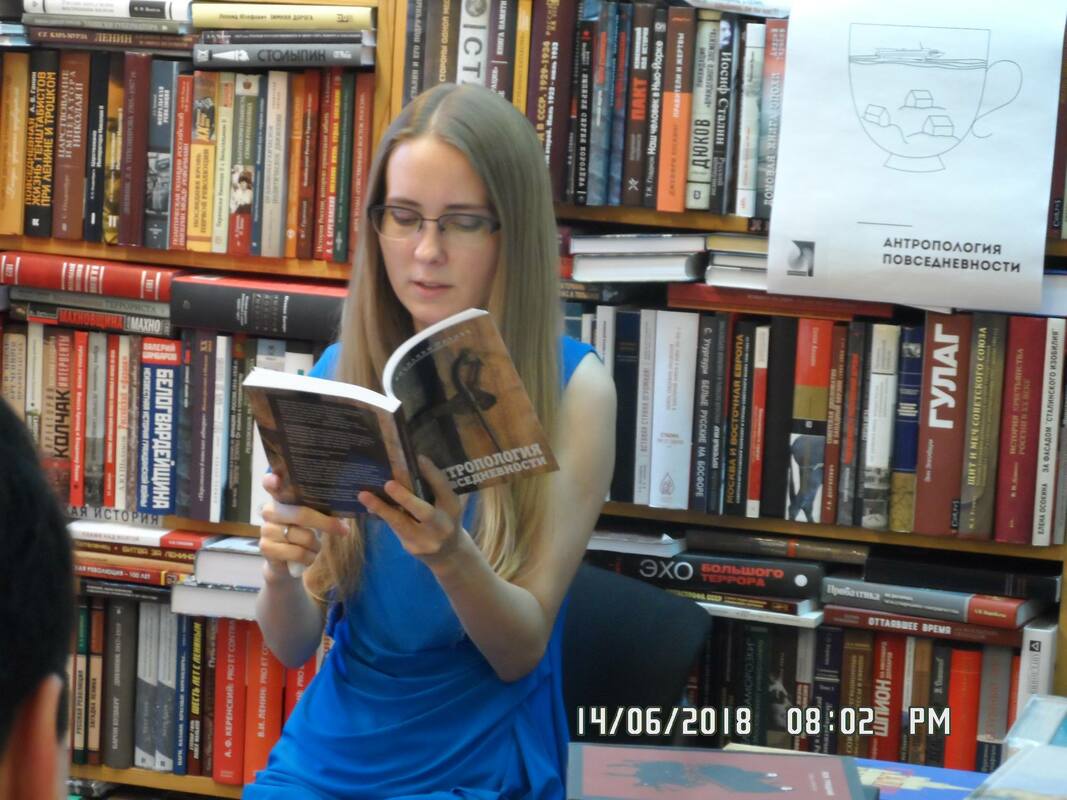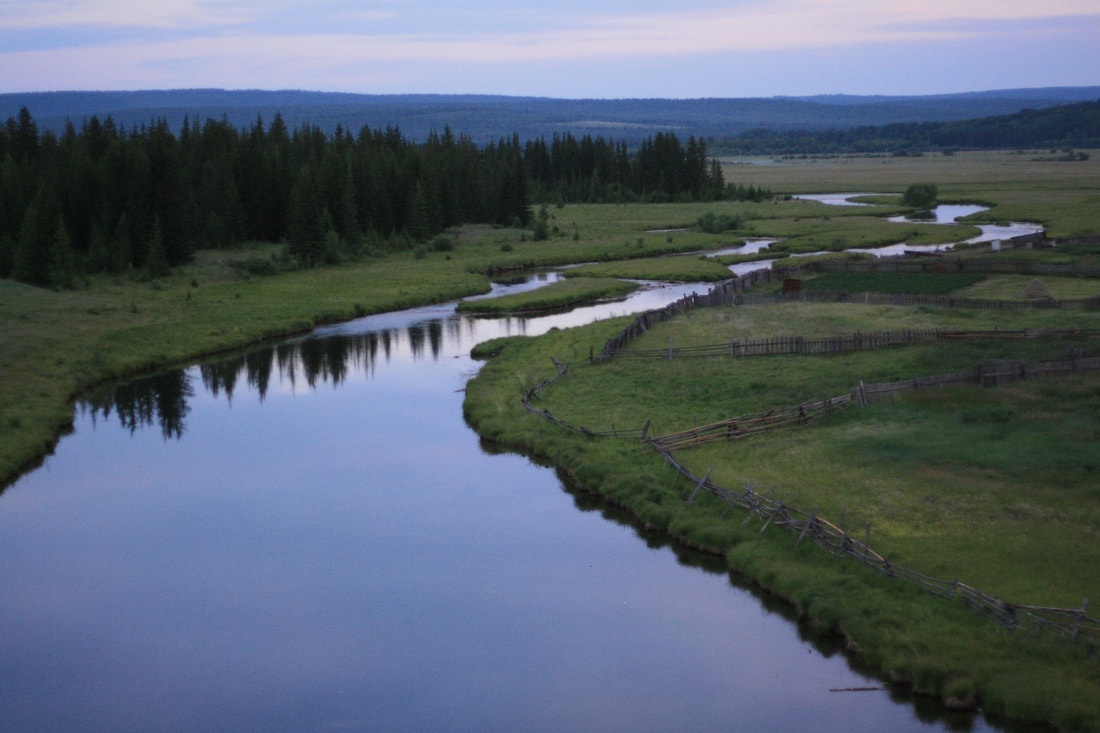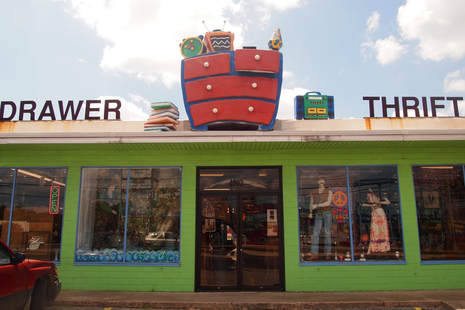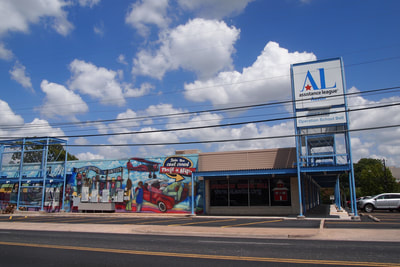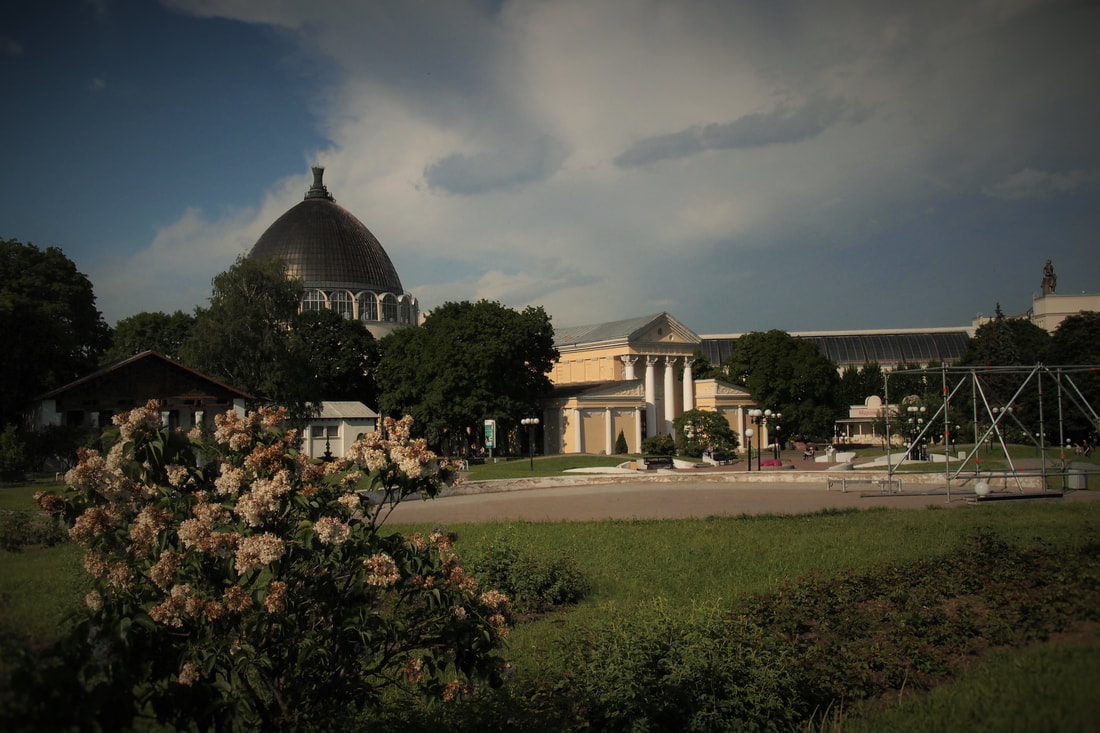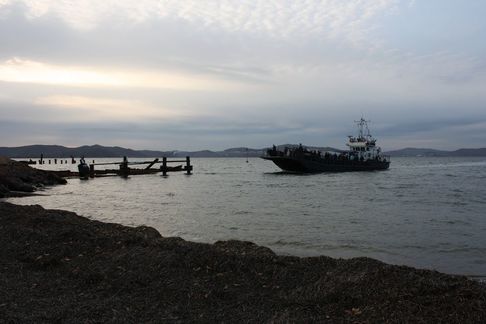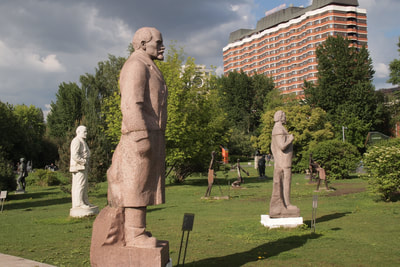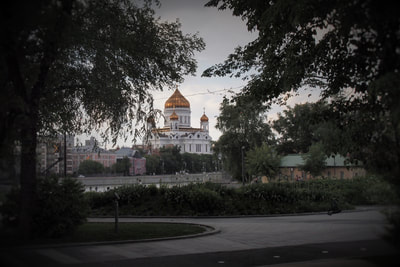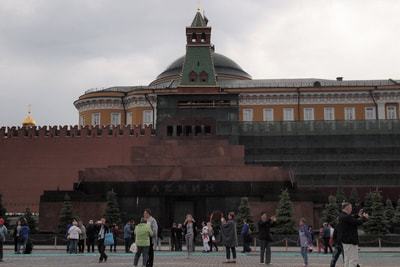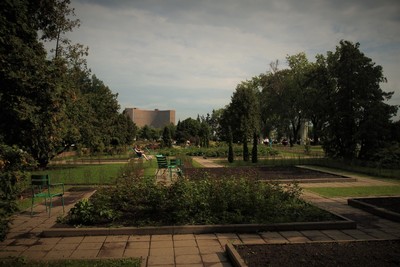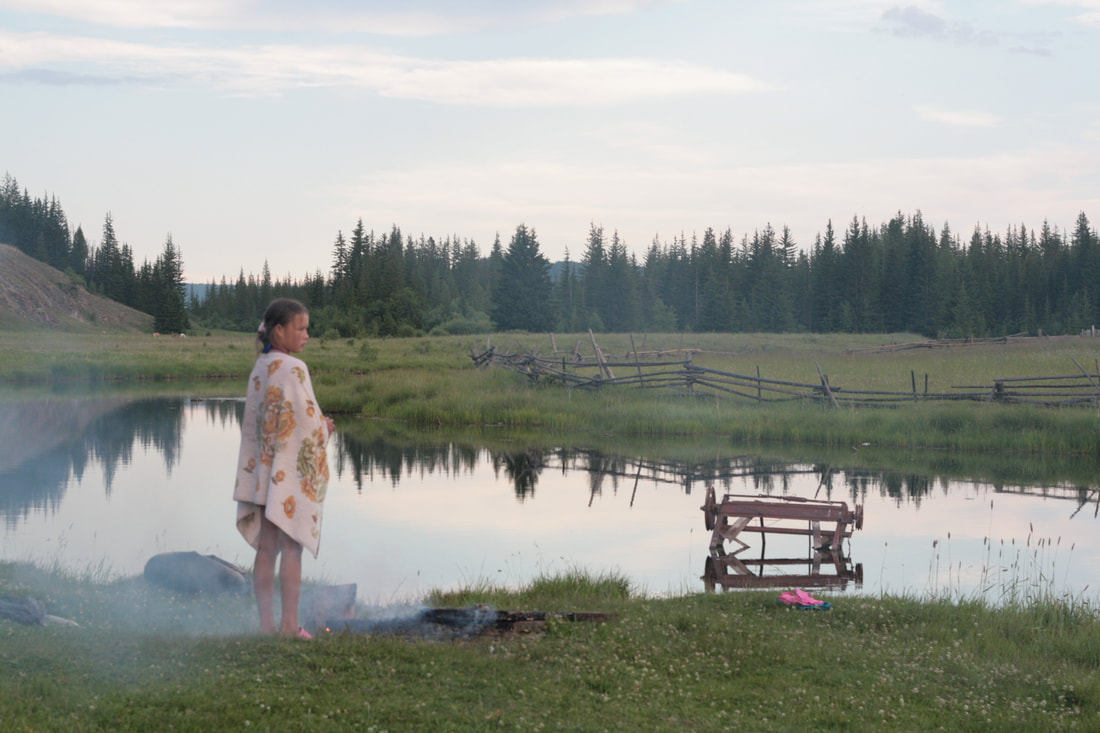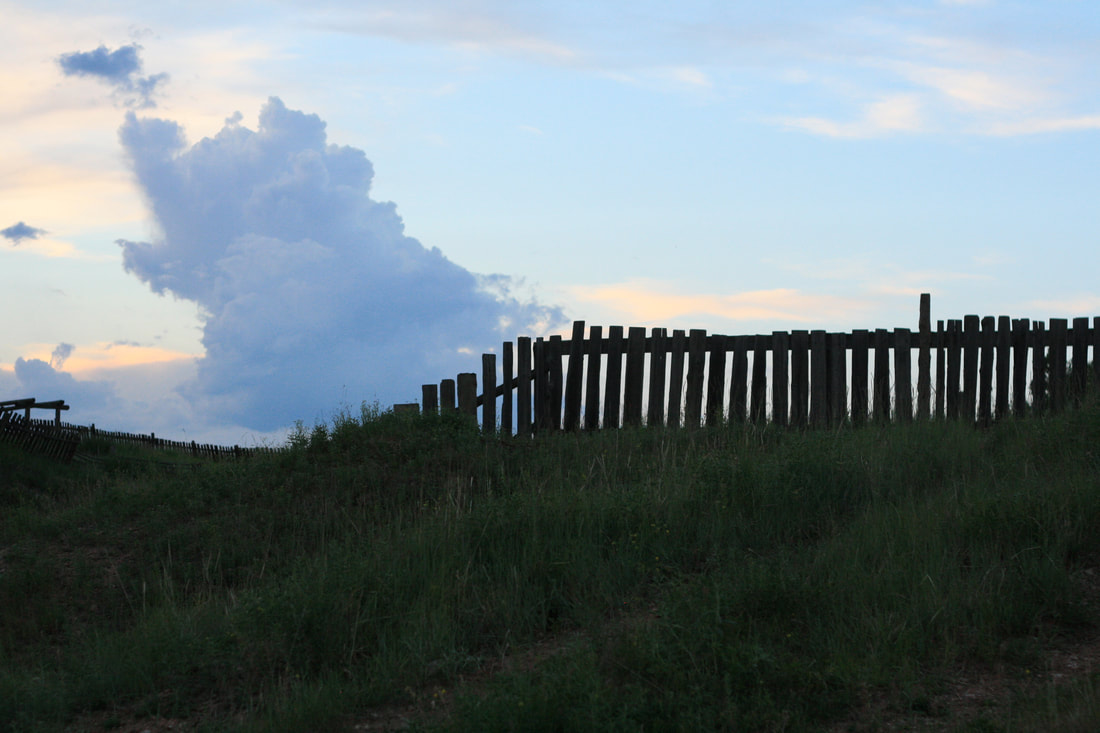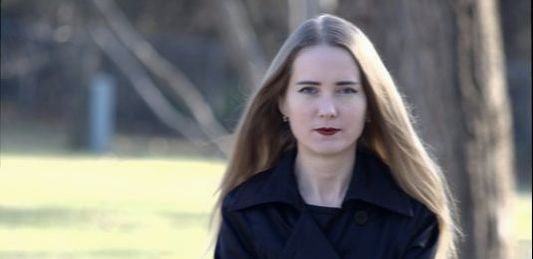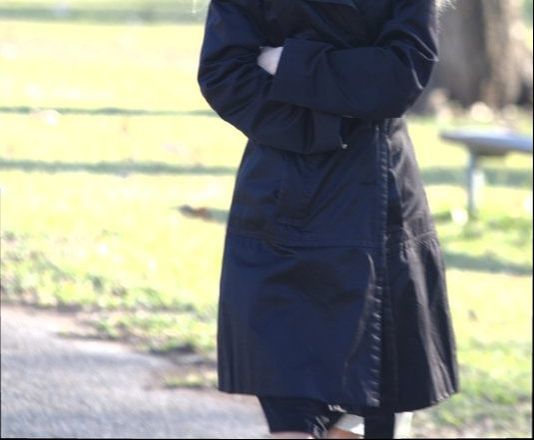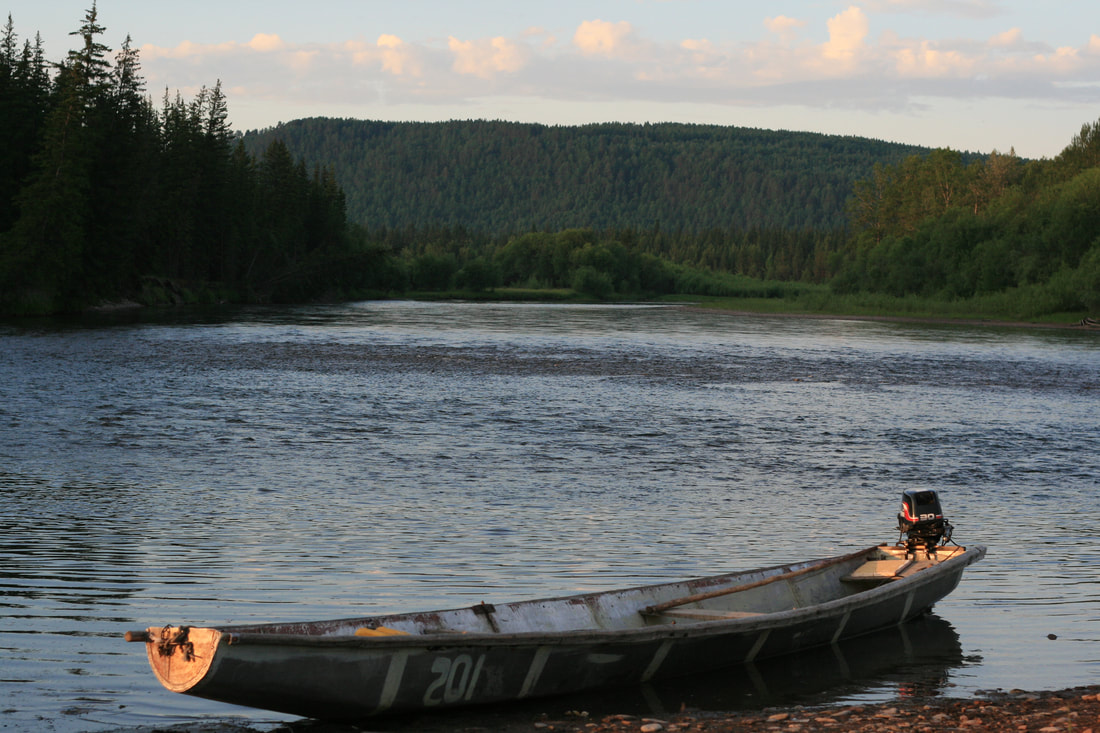About Me and My Project
Vasilina Orlova / 2019
|
I am a scholar and a writer. Currently, I am working on my Ph.D. in anthropology at the University of Texas at Austin. I am a Kandidat of Philosophical Sciences (Russian degree, received from Lomonosov Moscow State University in 2013). I hold a bachelor's degree's equivalent in philosophy from the same university.
I am a visual and multi-media anthropologist interested in infrastructure, affect, prosthetic qualities of the new media, digital self-representation (particularly selfies), technologies and robotics, as well as in pleasure, power, and violence. I work in Siberia. The rapid processes of urbanization and industrialization changed the face of the planet, and Siberia had its share in these transformations. Dispersed throughout the Russian Federation are thousands of small “city-type settlements” constructed in the latter half of the twentieth century. The remarkable period of industrial upheaval resulted in mass internal migrations and relocations in response to a centrally planned economy. Camps, town, and cities sprang up almost overnight, creating a remarkable industrial geography of socialist reorganization. Following the official end of the Soviet Union in 1991, many of these towns on the industrial edgelands suffered from a drastic reduction in government support and a collapse of manufactures. These processes resulted in a population evacuation. My work investigates mobility and moving that people conduct in failing and malfunctioning infrastructures in the rural industrial Eastern Siberia, as well as affects that the precarious conditions generate. How do people make decisions regarding their mobility and what conditions these decisions? Infrastructures become agential and affective: such modes of attachment to places as nostalgia, melancholy, and anticipation, spring in the material settings. Affects function like a form of rationality overwhelming the calculations to leave. The malfunctioning infrastructures and ruins produce affects that paradoxically make people disregard economic hardships and the rhetoric of better opportunities elsewhere. My work shows that in this particular Siberian place the sensorium of staying might be better explained by people's desire for a separate state, a sovereignty—not administrative, but metaphysical—by longing for the belonging to a different world, by nostalgia, and the lack of want to submit to the official government, as well as by the people's privileging of their own ways of ordering the world. These feelings generate an affective state of “stuckness” that is predicated on infrastructures built and abandoned during the Soviet times, before, and after. In the layered temporality of the Siberian post-Soviet spaces, the remnants of the future-that-never-was remain in the “formless form” of ruins now firmly situated in the past. I offer the term “affective infrastructures” encompassing the quality of infrastructures to store desires and fantasies and influence people’s decisions and routes of navigating the hard materialities of the world. Malfunctioning and outdated infrastructures as ruins of the futures that were imagined in the past but failed to materialize, have toxic and potent generativity, possess stubborn materiality, but at the same time, being a part of everydayness, are unnoticeable. To distill, my work is answering the question: why do people elect to stay put in the situations of dire hardships and infrastructural lacks in the Siberian village(s) even as they sometimes have better options available to them? This work finds that they stay not because they can't leave, but because they want to live in a separate (utopian) state, in a better world. This work proves its finding through ethnographic evidence obtained in Siberia through semi-structured open-ended interviews and participant observation collected during the fieldworks of 2016, 2017, 2018, (and 2019-2020, forthcoming). In 2018, my book Anthropology of Everydayness (Antropologia povsednevnosti) came out in Moscow publishing house Nookratia. It contained some of the ethnographic material that I collected in Siberia. Nezavisimaya newspaper included my book on the list of best non-fiction books of 2018. I have published books of prose and poetry in Russian, including Londonsky Dnevnik (London Diary, Izdatelstvo Romana Senchina, 2017), Mificheskaya Geographia (Mythical Geography, Voimega, Moscow, 2016), Kvartet (Quartet, Vagrius, Moscow, 2009), Pustinya (The Wilderness, Zebra E, Moscow, 2008), Vchera (Yesterday, Greita, Moscow, 2003). My writings have appeared in Russian literary journals such as Noviy Mir, Druzhba Narodov, and Oktyabr. I am a laureate of the Anton Delvig Prize for the poetry book Barefoot (2008). I have two books of poetry that came out in English, Contemporary Bestiary (2014) and Holy Robots (2017, both from Gutenberg Printing Press Independent Group). My works have been translated into English, French, Spanish, Dutch, Bulgarian, Ukrainian, and Russian. Writings in English have appeared in different journals and collected volumes, including Figroot Press, The End of Austin, Blue Bonnet Review, Bloodstone Review, and the Cultural Anthropology website. Reading from my book Anthropology of Everydayness in Moscow club Tsiolkovsky, 14/06/2018. Photo by Olga Balla
|
My work investigates mobility and moving that people conduct in failing and malfunctioning infrastructures in the rural industrial Eastern Siberia, as well as affects that the precarious conditions generate. How do people make decisions regarding their mobility and what conditions these decisions?” The Kluych River, Siberia
Austin, Texas
I grew up in Moscow
|
I was born in the village of Dunay in the Russian Far East
Fellowships, Grants, and Awards
|
2018 Wenner-Gren Dissertation Fieldwork Grant
2018, 2017 Summer Research Award, Department of Anthropology, UT–Austin 2018, 2017, 2016 McWilliams Russian Studies Scholarship, Center for Russian, East European and Eurasian Studies (CREEES), UT–Austin 2018 (2), 2017, 2016 (2) Professional Development Award, CREEES, UT–Austin 2018, 2017, 2016, 2015, 2014 (awarded but declined to accept) Professional Development Award, Office of Graduate Studies, UT–Austin 2017 Global Research Fellowship, UT–Austin 2014-2015 Graduate Recruitment Fellowship, College of Liberal Arts, UT–Austin 2011, 2010, 2009, 2008 Research Fellowship, Lomonosov Moscow State University 2009 Anton Delvig Literary Award for the Poetry Book «Босиком» [“Barefoot”] 2008 Generation Foundation Grant for the «Органон» [Organon] project 2005, 2004 Ministry of Culture of Russia Fellowship 2004 Crystal Rose of Viktor Rozov Award for the Book «Вчера» [“Yesterday”] |
Membership in Professional Organizations
American Anthropological Association (AAA)
Society for Cultural Anthropology
Post-Communist Cultural Studies Interest Group (SOYUZ)
Society for Visual Anthropology
Association for Slavic, East European, and Eurasian Studies (ASEEES)
American Anthropological Association (AAA)
Society for Cultural Anthropology
Post-Communist Cultural Studies Interest Group (SOYUZ)
Society for Visual Anthropology
Association for Slavic, East European, and Eurasian Studies (ASEEES)
